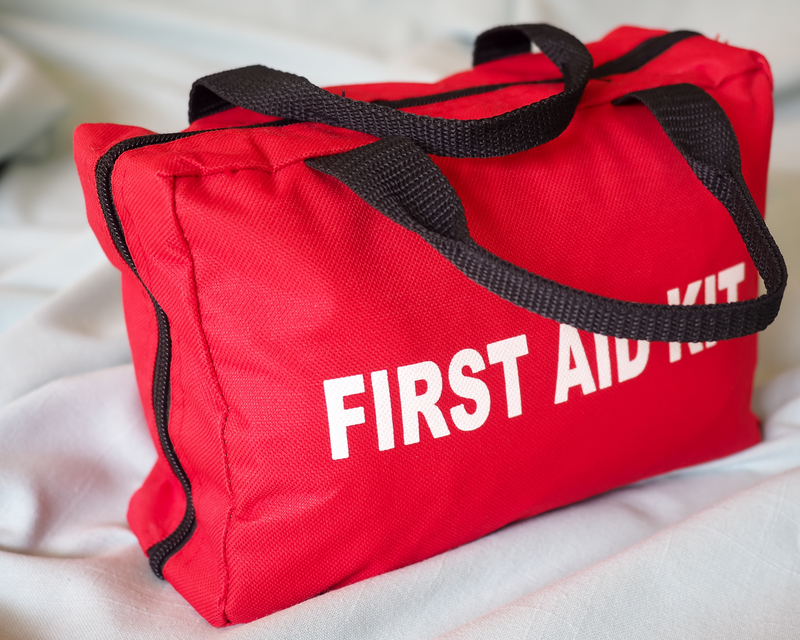Stress-Free House Relocation: A Roadmap
Posted on 21/06/2025
Stress-Free House Relocation: A Roadmap
House relocation is often seen as one of life's most challenging events. The very thought of packing up belongings, choosing the right movers, and settling into a new space can be overwhelming. However, with proper planning, guidance, and a clear roadmap, stress-free house relocation is not just a dream--it's totally achievable.
This comprehensive guide provides a complete strategy to ensure your house moving experience is smooth, organized, and minimally stressful. Whether you're relocating across town or to a different state, follow this roadmap to stress-free home moving for a seamless transition.
Why Does Home Relocation Feel So Stressful?
Understanding the sources of moving stress is the first step towards combating them. Some common triggers include:
- Change and uncertainty: Leaving behind familiar places, routines, and neighbors.
- Time pressure: Tight move-out and move-in deadlines create a sense of urgency.
- Logistical complexity: Coordinating packing, transportation, and paperwork.
- Emotional attachment: Difficulties letting go of meaningful items or memories.
- Physical fatigue: Lifting, loading, and organizing can take a toll.
The right approach replaces anxiety with confidence. Let's break down the ultimate house relocation roadmap into actionable steps.

Your Step-by-Step Roadmap for a Smooth House Move
1. Create a Relocation Timeline
Planning ahead is the backbone of a stress-free house relocation. Begin by drafting a personalized timeline for your move, starting at least 8-12 weeks before your expected move date.
Key milestones include:
- 8-12 weeks: Research removal companies, set your budget, and notify your landlord or real estate agent.
- 6-8 weeks: Sort and declutter belongings, collect moving supplies, and inform utility providers.
- 4-6 weeks: Book movers, notify schools, and update your address with essential services.
- 2-4 weeks: Start packing non-essential items, confirm details with your mover, and plan travel arrangements.
- 1 week to move: Pack essentials last, deep clean your home, and prepare key documents for moving day.
Pro tip: Use a move management app or spreadsheet to keep track of tasks and deadlines.
2. Declutter for a Fresh Start
Sorting and downsizing your possessions not only minimizes packing but can save you money and effort.
Follow these tips to declutter effectively:
- Room by room, sort items into: keep, donate/sell, recycle, or discard.
- Host a garage sale or list items online to lighten your load and earn extra money.
- Dispose of hazardous materials--paints, chemicals, old batteries--according to local regulations.
- Donate gently used items to local charities or shelters.
Remember: Letting go of unused items makes space for new experiences in your next home.
3. Choose the Right Moving Service
The market is brimming with moving companies--from full-service relocation experts to truck rentals for DIY moves. The type of mover you select impacts your relocation experience.
- Full-service movers: They handle packing, transport, and furniture assembly--ideal for a completely hassle-free move.
- Self-service movers: Movers transport your packed belongings, which you load and unload.
- DIY moving: Renting a moving truck for maximum control but most physical effort.
Key considerations when choosing movers:
- Check reviews, references, and accreditations.
- Request multiple written quotes to compare services and costs.
- Clarify insurance coverage for your possessions.
- Confirm availability for your preferred dates.
- Ask about specialty moves (pianos, antiques, pets) if needed.
A great mover can be the linchpin for a low-stress house move.
4. Organize, Pack, and Label
Effective packing protects your belongings and speeds up settling in. Here's your game plan for efficient packing and labeling:
- Gather sturdy boxes, tape, bubble wrap, markers, and specialty containers (like wardrobe boxes).
- Pack similar items together and label each box with room name and contents.
- Wrap fragile items with care and mark "Fragile" clearly.
- Disassemble large furniture if possible and keep screws in labeled baggies.
- Prepare an essentials box (toiletries, first aid, chargers, snacks) for your first night in the new home.
Start with non-essentials and work towards daily-use items as moving day nears.
5. Manage Utilities and Key Services
Transfer or set up essential services well before relocating to avoid any disruptions.
- Contact gas, electricity, water, and internet providers to arrange final readings and installations at your new address.
- Redirect subscription services, mail, and home insurance.
- Update your address with banks, employer, doctor, and government agencies.
- Arrange pet or child care for moving day if needed.
Tip: Record meter readings with photos for reference and to settle final bills.
6. Take Care of Valuables and Sensitive Items
Your most precious belongings--like legal papers, jewelry, and heirlooms--deserve special attention. Pack these separately and keep them with you during the move.
Store paperwork digitally by scanning documents and emailing them to yourself. This creates an accessible backup in case hard copies are misplaced.
7. Moving With Pets and Kids: A Family-Friendly Approach
Minimizing stress during family moves includes preparing every member--furry friends included!
- Involve children by assigning packing tasks and explaining the process step by step.
- Keep routines as normal as possible for pets and young kids on moving day.
- Pack a special bag with their favorite toys, food, and comfort items.
- Research pet regulations if moving interstate or internationally.
A little planning goes a long way toward a smoother transition for all members of the family.
On Moving Day: Stay Calm and Focused
The big day has arrived! Here's how to ensure your house removal day is as stress-free and organized as possible:
- Have a printed copy of your move plan, inventory list, and mover's contact details.
- Take a final walkthrough of your home to check for forgotten items.
- Supervise movers, answer their questions, and monitor fragile items being handled.
- Keep cleaning supplies handy for last-minute touch-ups.
- Make sure nothing is left behind in cabinets, closets, or the garden shed.
- Stay hydrated and take breaks if needed.
Tip: If possible, arrive at your new home before the movers. This allows you to direct them where to place boxes and furniture.
Unpacking and Settling In
A strategic approach to unpacking can quickly make your new house feel like home:
- Focus on essentials first--kitchen, bedrooms, and bathrooms.
- Unpack one room at a time, using your labeled boxes.
- Arrange furniture and decor to create cozy, familiar spaces.
- Introduce yourself to neighbors--it's a great way to start building connections in your new community.
The Psychological Side: Managing Stress and Staying Positive
Moving is physically demanding, but it's equally important to address the emotional side for a stress-free relocation experience.
- Practice self-care: Sleep well, eat nutritious meals, and take time to relax amidst the chaos.
- Focus on the positives: Moving is an opportunity for growth, fresh starts, and new experiences.
- Maintain routines: Keeping parts of your daily ritual (like evening walks or morning coffee) provides comfort.
- Ask for help: Enlist support from friends, family, or professionals when needed.
- Celebrate small achievements: Each task completed is a step closer to settling in!
Frequently Asked Questions About House Relocation
- How far in advance should I start planning my house move?
For the most relaxed home relocation experience, start organizing 8-12 weeks before your move date. - How can I save money during my house relocation?
Declutter extensively, compare mover quotes, move midweek when rates are lower, and pack yourself if possible. - What's the best way to move with children or pets?
Maintain their routines, involve them in age-appropriate move tasks, and prioritize their comfort during the transition. - How do I avoid last-minute moving chaos?
Stick to your moving checklist and timeline. Avoid leaving packing or arrangements until the eleventh hour.

The Benefits of a Well-Planned, Stress-Free Home Move
Mastering the art of a stress-free house relocation offers a host of advantages:
- Protects your mental and physical health from the strains of moving.
- Prevents damage to valuables and reduces risk of lost items.
- Enables you to settle in and enjoy your new space much sooner.
- Strengthens relationships with family and new neighbors.
- Makes moving a positive, even enjoyable, life milestone!
In Summary: Your Roadmap to Relocation Success
Moving house doesn't have to be a stressful ordeal. Careful planning, organizing, and a positive mindset form the perfect recipe for a successful, stress-free home relocation. By using this roadmap, you'll not only get your belongings from A to B--you'll arrive feeling energized and ready to embrace your new home and new beginnings.
Ready to make your next move? Start today by creating your personal relocation checklist and timeline. With the right approach, you can transform your move into an opportunity for growth, excitement, and a fresh start. Happy moving!
Latest Posts
Decoding the Process of Moving Bed and Mattress
Stress-Free House Relocation: A Roadmap
Clean Your House Like a Pro Before Moving Day



